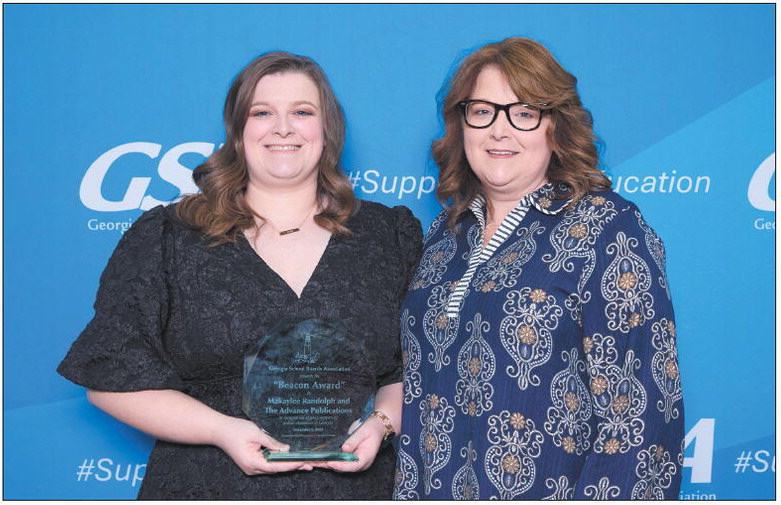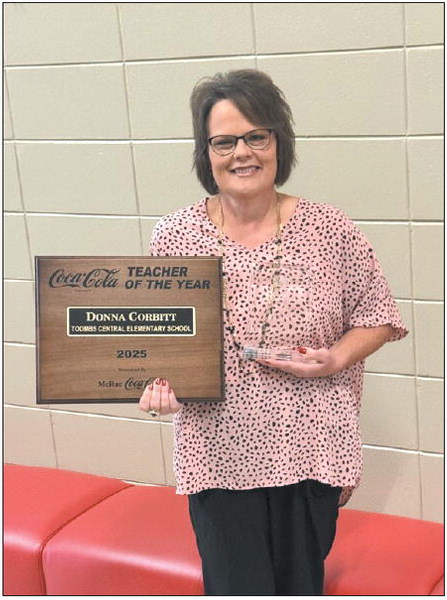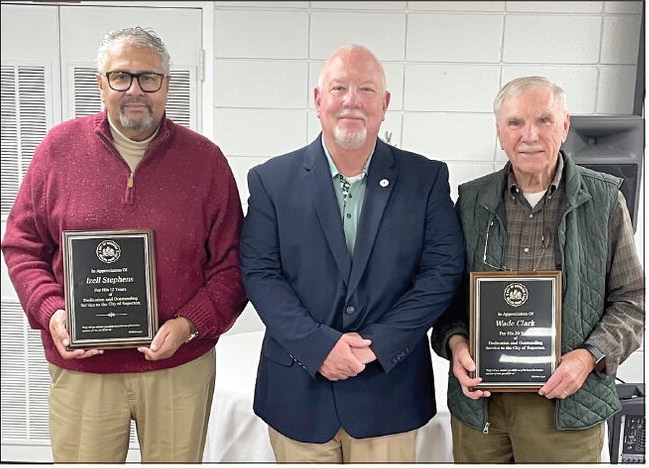continued from page the charge ….
continued from page
the charge to gain election integrity within the state.
On Monday, a Henry County judge hearing the lawsuit requested additional investigations in the case. Superior Court Judge Brian Amero asked Georgia election investigators and the Georgia Bureau of Investigation to provide an update regarding any of their findings regarding allegations of counterfeit ballots in the 2020 election. He put the lawsuit on hold for about 20 days to give the Secretary of State’s office and GBI time to respond. Amero previously dismissed the case against Fulton’s elections board and the county itself, but allowed the lawsuit to continue against individual election board members.
Ligon began the meeting by explaining that the state of the country brought forth the question of what drives the actions of government authority: “Is it negligence, incompetence, or intentional?” he asked.
He continued to explain that there are four things that occur when a nation is being taken over: demoralization, crisis creation, overwhelming regulation, and election takeover through illegitimate means.
Ligon explained that an Elections Integrity Committee was formed and held its first meeting on December 3; after this initial meeting, public hearings were held which were “flooded with people” which helped the committee conclude that results from certain counties should not be trusted. Some of the concerns that citizens shared with the Committee were “lax” methods of handling ballots, harassment of poll workers and watchers, and incriminating footage from the Fulton County State Farm Arena security video.
“These concerns, videos, and stories do not generate confidence within voters,” Ligon explained.
Gordon began his segment with a video precontinued from page
sentation regarding the evidence of voting fraud in Fulton County. He explained he had come out of retirement to manage the lawsuit against Fulton County Board of Elections staff because he firmly believes the freedom enjoyed by Americans “rests on the right to pick our leaders.”
He explained that the evidence of voter fraud in Atlanta could be summarized through four types: tangible evidence, sworn testimony, video evidence, and statements against interest.
Gordon also held a question and answer portion within the meeting to address any concerns of those attending. The first question addressed dealt with the possibility of the accused being prosecuted. Gordon explained that the trial was a very difficult process, but that the public may use a Citizen’s Grand Jury to pursue prosecution of the defendant if they felt that justice was not accomplished.
Another question addressed the possibility of the accused having planned the fraud for a long time. Gordon explained that upon approval by a judge, a thorough investigation would be conducted by a data analyst, a team of election officials, and a professional who has studied government-related paper for years. Gordon explained that currently, the ballots from Fulton County were kept in a secure location that was guarded at all times by off-duty law enforcement.
Tillery summed up the meeting by explaining that even if large margins of fraud were found, it was improbable the presidential election results would change. “According to the Constitution, once the Electoral College has cast its votes, the results are final,” Tillery explained. “However, it could ensure this issue did not continue to happen, as well as possibly overturn the Georgia Senate Election with David Perdue.”
Yet, Tillery encouraged the attendees to “stand as Americans” and work to ensure honest 2022/2024 elections. “Voting fraud is not a partisan issue – it is an American issue,” he said.
For more information on the status and procedure of the quest for election integrity, visit www. senatorligon.com or www. voterscount.org, or contact Tillery.





